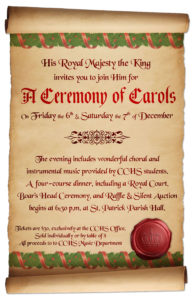The following is a continuation of an earlier article titled, “It’s a Wonder.”
English is certainly a rich language. Why so? Because we English-men toss letters away like so much confetti.
It seems every other word has a silent E. Okay; that’s an exaggeration, but consider the title words of this topic. I do concede that silent E may serve a purpose, telling us how to pronounce the preceding non-silent vowel. For example, it might keep people from pronouncing “case” as if it were spelled “cass.”
I’m less charitable toward double letters. Who really needs the extra G in “exaggeration” or the extra D in “shudder”? I could be wrong, though. It’s not hard to imagine somebody trying to pronounce “shuder” as if it rhymed with “shooter.”
Just for fun, I’ll finish with a word where every letter is silent, indicated here by an asterisk (*) for each silent letter. Presumably, such a word is unpronounceable; make that non-pronounceable.
The word I’m thinking of is “bagged,” pronounced “******.” Here’s how I spell it:
Busing the B in “debt” Ausing the A in “clear” or “dread” or … Gusing the G in “gnaw” or “gnome” or … Gusing the G in “impugn” or “paradigm” Eusing the E in “bye” Dusing the first D in “Wednesday”
So, next time you’re asked to read the word “bagged” aloud, you can keep your mouth shut—a suggestion I’ve often heard.
By the way, whatever happened to the P in “cupboard, the T in “ballet,” the W in “answer,” the N in “column,” or the C in “scene” (also “scissors” etc.)?
Another thought: E may be silent at the end of words, but it can be mighty loud elsewhere. Take, for example, how E shouts down the A in “dear,” the I in “lien” and the O in “people.” Of course, A gains revenge by taking over the E in “ballet.”
While the previous topic discusses letters that are present but not pronounced, there are also ghostly letters—pronounced but not present. Take, for example, the ghostly word “SHAKER” formed as follows:
S as in “accede” H as in “fissure” A as in “cherry” K as in “tachometer” ER as in “colonel”
We could consider the Z in “xenon” (chemical element, atomic number 54), but that particular Z isn’t strictly a ghost. It’s more an imposter, disguising itself as an X.
Indecision is a Terrible Thing
The previous two topics made me aware of another oddity about English pronunciation—paired vowels can be indecisive. Consider just a few cases:
EA as in “knead” vs. “thread” vs. “bear” IE as in “friend” vs. “fiend” vs. “spied” EI as in “sleigh” vs. “caffeine” vs. “albeit” vs. “stein” OE as in “amoeba” vs. “canoe” vs. “poet”
Considering all this, I ask you: How does a foreigner ever learn to speak our language? It’s a wonder!
Billy K. Butler writes from Fernley Nevada where he spends time contemplating the finer points of the English language. Never miss the local news — read more on The Fallon Post home page. If you enjoy The Fallon Post, please support our effort to provide local, independent news and make a contribution today. Your contribution makes possible this online news source for all things Fallon.









































Comment
Comments